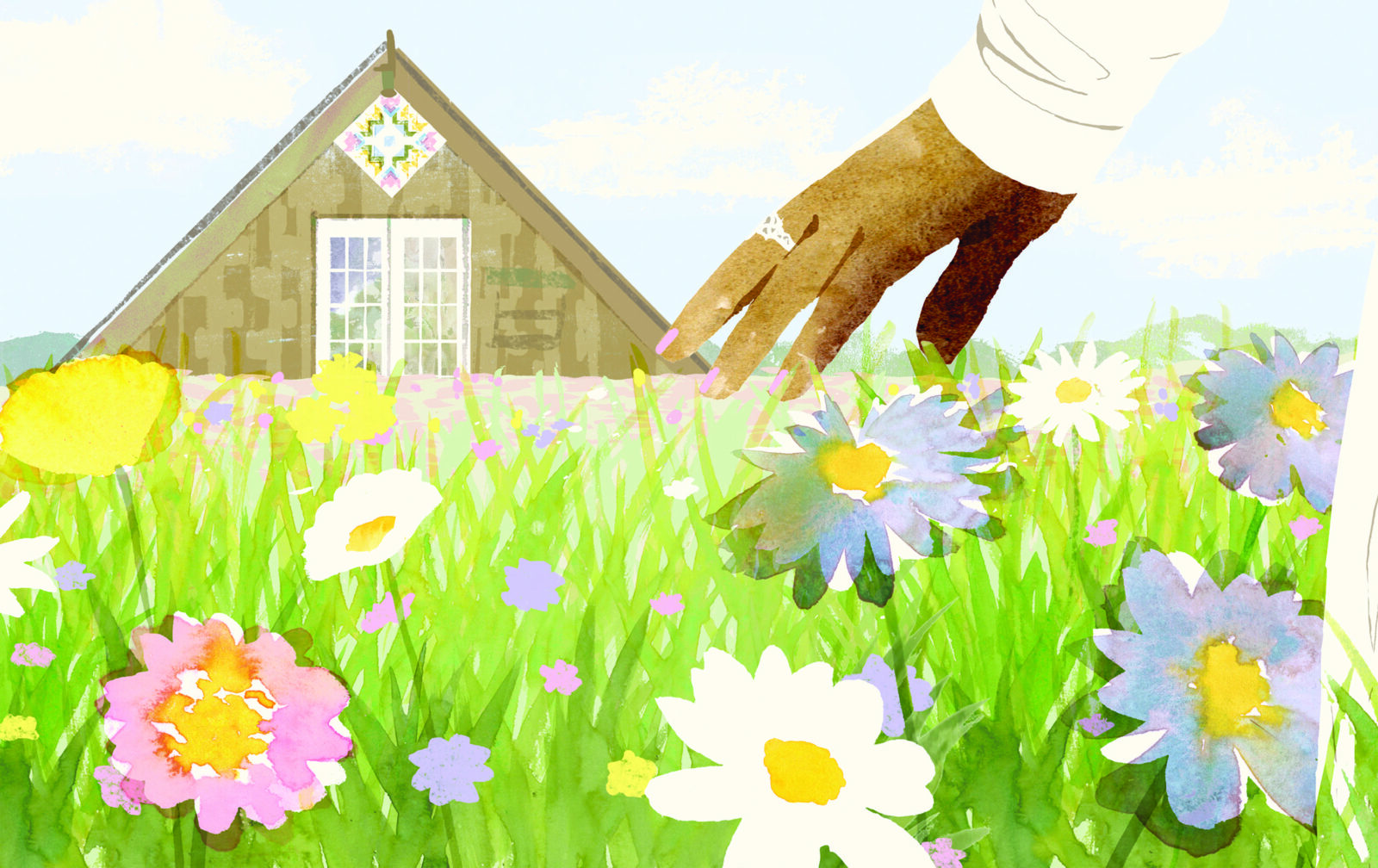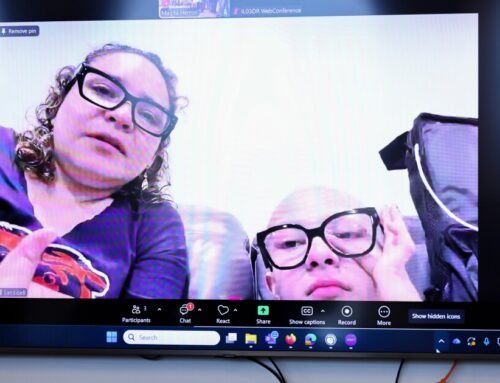
Sometimes a place finds you when you most need it. Such was the case with the Museum of Infinite Outcomes, tucked in a little patch of sun in Knoxville.
I was there because I was searching.
Early in the fall, I emphasized to my creative writing students at Georgia’s Augusta University that stories are about power: who has it, who wants it, and why. And our personal stories are about agency—the capacity and drive to make choices. We spent many of the course’s first days analyzing the forces that weigh on characters in well-known short stories and creating imaginary maelstroms for our own characters to endure, unaware of the real one coming our way: Helene.
We watched as the hurricane traversed the Yucatán Peninsula, the winds gaining energy from the too-warm Gulf of Mexico. We were told it would be bad for those on the coast, but we didn’t understand the scale of what was coming. When it passed, the vibrant patchwork of the South that I knew and loved, that my family had called home for generations, had irrevocably changed.
The storm destroyed hundreds of trees on campus. A deodar cedar—registered as a Champion Tree, the largest of its species in Georgia—once stood sentinel over the main gates of the university’s liberal arts campus. During Helene, it came crashing down, leaving rubble in its wake. Black walnuts, oaks, even the shrubbiest Osage oranges—nothing escaped the wind that swept up Walton Way. When I drive around campus now, I notice too much sunlight.
A week-plus after the storm, classes restarted. The role of the artist, as I see it, is to try to make order out of disorder, to find the traits and themes that make meaning of the world. And, as I told my dean, to help with healing and community building in times of calamity. Then I faced the students who had managed to pick their way through the debris to return to the classroom, at that point one of the only places in Augusta with power and running water, to hear what I had to say on the heels of a disaster that uprooted all of our lives.
What will you write about what we have just survived? I asked them. But I was asking myself too. I didn’t have an answer. My mother’s home back in Spartanburg, South Carolina, still had no power, and just beyond the foothills, stories of survivors gathering to count and commemorate the dead were starting to emerge. The number of fatalities kept climbing.
As Southerners do, I gave what I had. My contributions were small. I felt small.
I’ve endured natural disasters before. Tornadoes, ice storms, blizzards. I once lived in a town that routinely pushed avalanche warnings to our phones. I thought I was accustomed to these sorts of things. But Helene unmoored me.
The Appalachians are some of the oldest mountains in the world. In my short lifetime, they have felt steadfast, a constant, my own lodestone, calling me back when I strayed too far. I had forgotten—perhaps many of us had—that they were still capable of movement too. Or maybe we like to forget that part of the story, because remembering or, better yet, understanding, would mean we were powerless in the face of it.
And that’s how I felt: powerless, even after the lights finally came back on. As if my body were living in its own state of emergency. I couldn’t write. I couldn’t grade. When I knew that I’d done what I could for my elders and my students, and gas was no longer in short supply, I fled in an act of self-preservation to a friend’s little farm on the outskirts of Knoxville.
That’s how I found myself wandering the city’s neighborhoods aimlessly. I searched Google Maps for something to do, somewhere to be. I saw the Alex Haley statue in Heritage Square, and visited the Bottom bookshop, but couldn’t find solace in either place, already filled with stories. Then “the Museum of Infinite Outcomes” caught my eye on the map. What is that?
When I arrived, I found what looked like a community garden, and next to a little saloon-door-style gate, I saw a faded sign:
Museum of Infinite Outcomes Garden Agreements:
1. All are welcome
2. Visit while the sun is up
3. Harvest only what you need
4. Please watch your step
The open-air museum wasn’t big, less than a quarter-acre, but it brimmed with life between pebbled paths. Fuchsia zinnias drew flying insects, and burgundy and gold trees edged the property. The air carried the honeyed smell of plant life releasing its last bits of chlorophyll.
A daintily painted sign reminded me that “we can root ourselves through our senses to remind us of who we are.” As if they were listening, the mosquitoes lingering in the still-warm autumn pricked at me, forcing me out of my musings. For the first time in several weeks, I was present.
In the back of the plot sat an A-frame building, titled the Library of Infinite Outcomes, a lending library of seeds. “Our history, the history of civilized humans, is a history of seeds,” another sign explained. “Sharing seeds rejects the myth of competition and primitive accumulation. Over time the farmer shapes its crops, and the crops shape the farmer. This is our common ground.”
There were more signs: meditations about migration, metamorphosis, the mystery of memory; about patterns in nature. The signs were about the garden. But they were also about me.
Who cultivated this place, I wondered, and what was it for? The garden held no clues, so I turned to the internet. The Museum of Infinite Outcomes is the brainchild of Ashlee Mays, a printmaker, and her husband, the illustrator Logan Szymanowski.
“I’ve never been very good at making work for galleries,” Mays tells me when I call her. “I wanted to make work that lived outside and had a living relationship with the living world.” She explains that the plot had a history of foreclosures and other challenges, so she and Szymanowski secured it for a bargain. They spent a few years gardening there until the idea of an open-air museum of conservation bloomed.
The pair think about conservation two ways: preserving biodiversity, but also, “in physics, we lean on the law of conservation of energy to demonstrate that no energy is created or destroyed, that it only changes forms,” Mays says. Both inform their definition of “infinite outcomes”: “We are not things that just hover above the world and talk about the world and make prints about the world, but we are a part of that infinitely changing form. Then we use the tools in ecology to preserve that infinitely shifting form. We use the garden as a playground for those things.”
Central to that playground: seeds. “Our relationship to the land is shifting in such ways that we don’t know what the future holds,” Mays continues. “But we’ve been saving information in terms of seeds, and planting those as a future. I see seeds as this way of rooting ourselves into a collective memory, of trying to hang on to the information that we’ve saved and passed on. I see them as a portal to both that collective past and also a collective future.”
Driving away from the museum, I pondered seeds as vessels of hope, even as my own relationship to the land had been shaken. I followed the French Broad River, which overflowed and destroyed so much, home that day. It’s ancient too, though not quite as aged as the mountains it weaves through, constantly wearing them down. As I traveled alongside the path it has cut, I was awed by its beauty. But as I drove through places it ravaged, like Hot Springs, North Carolina, I was, for the first time, also terrified by its power. Two truths, putting another in relief: that a resource that sustains us can also wash us away.
These days, my weekly commute from Spartanburg to Augusta is still filled with debris, buckled fences, uprooted trees. The morning fog clings to my car, burning off the closer I get to campus. By the time I crest the final hill that leads down into the city, the sky is filled with lavender light.
But there are mornings the fog inside me doesn’t lift. And then I remember the museum. I remember seeds. I envision a different world, one built on the collective good, where everyone has enough. I plan to go one step further: to replant some of the key species now missing from our ecosystem—my small act of faith in the future.
…
gardenandgun.com
Feed Name : Garden & Gun
Travel,Gardens,Hurricane Helene,Knoxville,Tennessee,This Land,What's New
hashtags : #Discovering #Seeds #Hope #Hurricane #Helenes #Ruinous #Wake #Garden #Gun






Leave A Comment